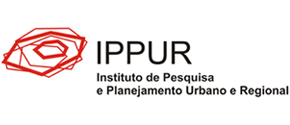Resumo em Inglês
Patrícia Eveline dos Santos RoncatoDoutora Em Extensão Rural pela Universidade Federal de Santa Maria (2018). Professora na Universidade Federal do Pampa (UNIPAMPA), campus Santana do Livramento (RS).João Garibaldi Almeida VianaDoutorado em Agronegócios pela UFRGS; Professor do Programa de Pós-Graduação em Administração (PPGA/UNIPAMPA) da Universidade Federal do Pampa, Campus Santana do LivramentoMarco Antônio Verardi FialhoDoutorado em Ciências Sociais em Desenvolvimento, Agricultura e Sociedade pela Universidade Federal Rural do Rio de Janeiro (2005). Professor Associado do Programa de Pós-Graduação em Extensão Rural da Universidade Federal de Santa Maria. The PRONAF "MORE FOOD" in the granary region of Rio Grande do Sul: An institutional analysis of decision-making
The National Program for Strengthening Family Agriculture (PRONAF) “More Food” was created in 2008 with the aim of promoting food production and increasing the productivity of family farming. Aiming at generating income and improving the use of family labor, it provides funding for funding and investments in the implementation, expansion or modernization of the structure of production, processing, industrialization and services in the rural establishment or in nearby rural community areas. However, although most of the family producers are able to benefit from the program, their full adherence to credit incentives was limited. Thus, in addition to having other elements that may contribute to understanding this fact, the objective of this article is to identify the influence of formal and informal institutional components on the decisions of those who adhered, or not, to this public policy in family establishments in the Celeiro do Rio region. Great South. By establishing this region as a cutout, a stratified sample of 94 family farmers was analyzed using a quantitative approach of a descriptive nature. The data collected by questionnaires were worked through descriptive statistics and logical regression. As a result, it was found that institutional components influence the decision to adhere to the policy as well as area and level of technology together with routines and behavior patterns form a fundamental basis for organizing the rules of farmers decisions. Finally, it is emphasized that the results found in the research corroborate, in relation to the decision-making of those who adhered to Pronaf Mais Alimentos, with the theoretical approaches of Institutionalism.
Resumo em Português - Texto
Download PDF
Voltar



